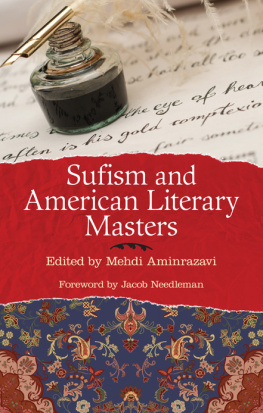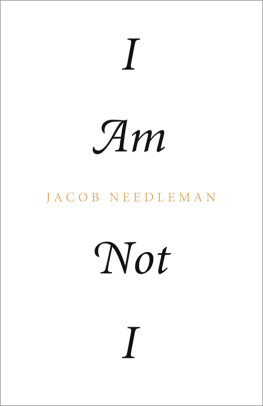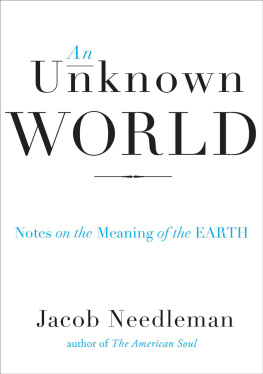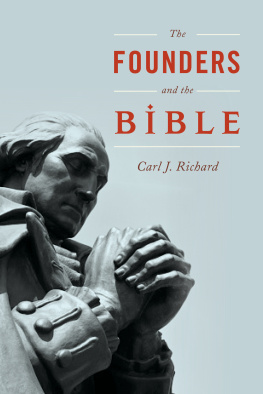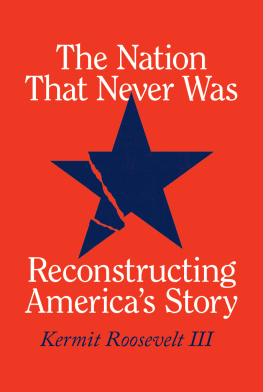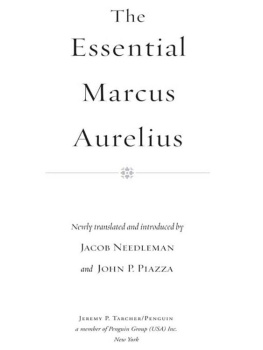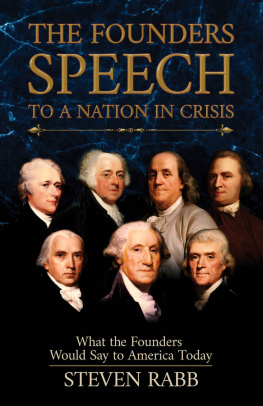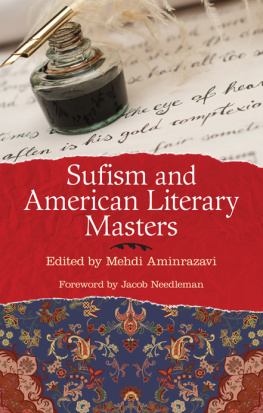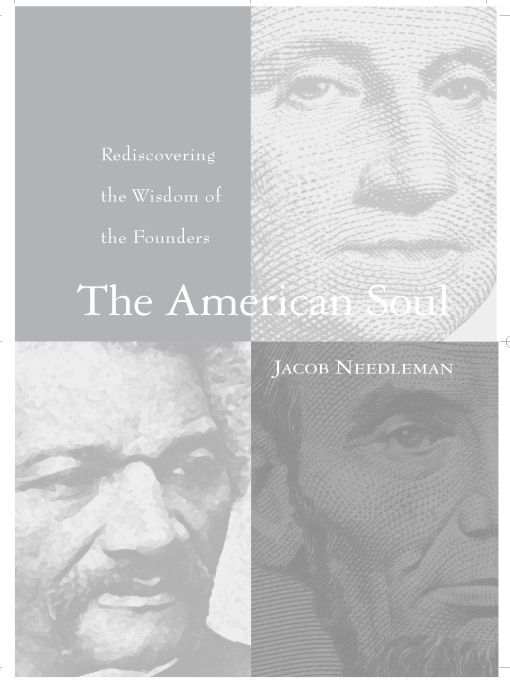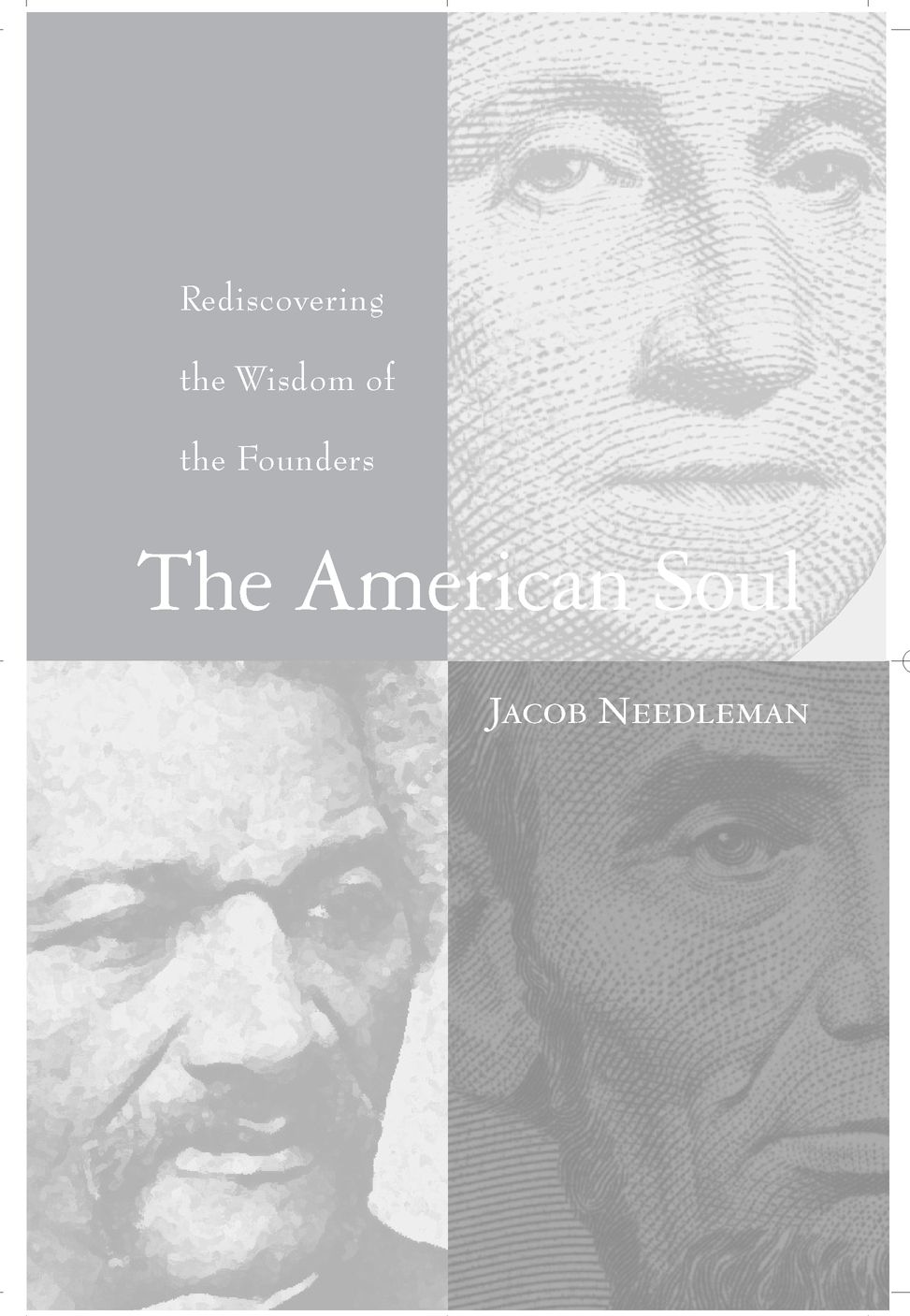Table of Contents
ALSO BY JACOB NEEDLEMAN
Time and the Soul
A Little Book on Love
Money and the Meaning of Life
The Heart of Philosophy
Lost Christianity
The Way of the Physician
A Sense of the Cosmos
The Indestructible Question
The Sword of Gnosis (Editor)
Sorcerers (A Novel)
Where there is no vision, the people perish. PROVERBS 29:18
To my teachers
ACKNOWLEDGMENTS
My first thanks are to the Fetzer Institute for the understanding and support that helped me to complete this book, and for the warmth and idealism of the whole Fetzer community.
I owe a great debt of gratitude to friends and colleagues who read this book at various stages of completion and offered much-needed criticism and encouragement. Roger Lipsey took on this task in a far more rigorous and loving way than I had a right to expect even from such a valued friend. In the same spirit, I wish to thank Angeles Arrien, George Baker, Sharon Ball, Steven Brown, Carlo Brumat, John Hunt, Nancy Larson, Rob Lehman, John Miller, John Oliver, John Piazza, Judy Shelton and Alison Tierney.
I have been very fortunate in the editors who have worked with me. Mitch Horowitz at Tarcher was everything an editor should be, both down-to-earth and practical when necessary, bringing his own visionary insight into the questions that I was trying to confront. I am also deeply grateful to Harriet Rubin for the editorial commitment, energy and intelligence that helped me to undertake the writing of this book. Roger Scholl also offered valuable observations and support.
I wish to thank my agent, Michael Katz, for his unfailing professionalism, his keen insights and his friendship over the years.
My thanks also to Ashala Gabriel for her help, her encouragement and her continuing faith in my work.
I am especially grateful to Maril Rianna Blanchard for allowing me to make extensive use of her superb unpublished retelling of the Iroquois creation story and for her generous help at any time of the day or night when I was defeated by the computer.
My personal assistant, Shivanii Singh, together with her husband, Frank Cordes, helped me in ways too numerous to mentionwith an extraordinary combination of intelligence, efficiency and pure open-heartedness.
Likewise, I am grateful to Noelle Cafagna for all the ways she helped during the preparation of the early drafts.
I am deeply grateful to my friend Sidney Lanier for the spirited conversations that nourished my wish to understand the inner meaning of the idea of America.
I owe special thanks to Roger Weir for sharing with me his remarkable knowledge of American history and his insight into its metaphysical dimensions.
I wish also to thank Laurance Rockefeller for the generous support that enabled me to start this project.
Finally, my wife, Gail, brought me the incalculable support of understanding exactly what I was hoping to accomplish in this book, while tirelessly helping in every essential aspect of its writing with her keen critical mind, her eagle eye and, above all, her unwavering conscience and her love.
Preamble
He used to call himself the last American. In fact, he seemed anything but Americanwith his commanding British accent, his aristocratic bearing and his bred-in-the-bone sense of form, always and in everything. I would smile to myself when he spoke like that. I was born here, after all. How could a foreigner, even a man as great-hearted as he was, lay such claim to America? Only now do I begin to understand what he meant, and only now do I see how deep his love for America really was.
It was the summer of l974. The Vietnam War was tearing the country apart. The image of Americas invincibility and goodness was crashing down around us. I had gathered a group to meet him at his summer house overlooking San Francisco Bayabout fifteen people, most of whom were my students, and a few like myself from the older generation, who could not accept the judgment against America that was rising into the world through the moral agony of the younger generation. I had been encountering this judgment every day in my classes at the university, but I continued to turn away from it, unwilling to question the fundamental goodness of my country.
I had brought some students and colleagues to meet this man, whom I had long considered remarkable for his wisdom and wide-ranging intelligence. I knew that although before World War II he had pursued a diplomatic career in Great Britain, his life had soon taken him in quite a different direction; and never once in all the years I had known him had I heard him say much about purely political questions. I never doubted that he was a shrewd observer of modern life, and his success in business was evidence of his worldly acumen. But with him, the main issue was always the path of self-knowledge, the need to awaken from the illusions about oneself that hold humanity in their grip and that prevent us from seeing reality and living according to conscience. I had never known anyone who could speak with more insight about the nature of this path, this way of seeking that lies at the root of all the great spiritual philosophies and traditions of the world. The quarrels of nations, the fervor of patriotism, the programs of social movements, the luster of heroic figures or partisan symbols: I was sure that all this was to him part of the sleep of the human race. And the task of waking up demanded, among other things, the struggle to free oneself from the falsehoods and attachments that gave these social and political phenomena their hypnotic power.
And so it astonished me when he suddenly interrupted one of the younger people who was once again speaking of America with contempt, condemning not only its war policy but the whole structure of its government, the injustice that they felt was built into its institutions and its laws and that had shaped its entire history. America was hypocritically betraying all that it claimed to stand for. American corporations were raping nature and the world. The media were under the thumb of American greed, blanketing the earth with a global consumerism that was destroying the values of simpler, nobler cultures.
Such views were not delivered in any systematic way, but rather crept in and out of my students questions and conversation throughout the evening as they gave voice to their revulsion at what America offered them for their future and their present daily life.
We were sitting on the patio under a black, moonless sky, our faces lit by the flickering light of a few candles in the center of a large stone table. We all had iced drinks in our hands or in front of us. His interruption took the form of very slowly putting down the glass that was in his handso slowly and quietly, and with such a measured, even movement that at first it seemed like some kind of ritual gesture. Everyone suddenly became quiet and looked at him, waiting. I remember listening for a long time to the waves of the bay and watching the lights of San Francisco across the water. The wind was shifting and turning cool. People were putting their collars up and hugging themselves, but no one dared get up. Foghorns were answering each other like far-off, unseen sea creatures.
Just as slowly and evenly, he angled his long, lean body back in his chair and gazed at nothing in particular. Then he turned his head as though it were a gun turret and looked directly at the husky, bearded young man who had just been speaking about the crimes of America. In the flickering candlelight, his bony face seemed wondrously alive and menacing at the same time. What he said to the young manand of course to all of us presentwas only this:


